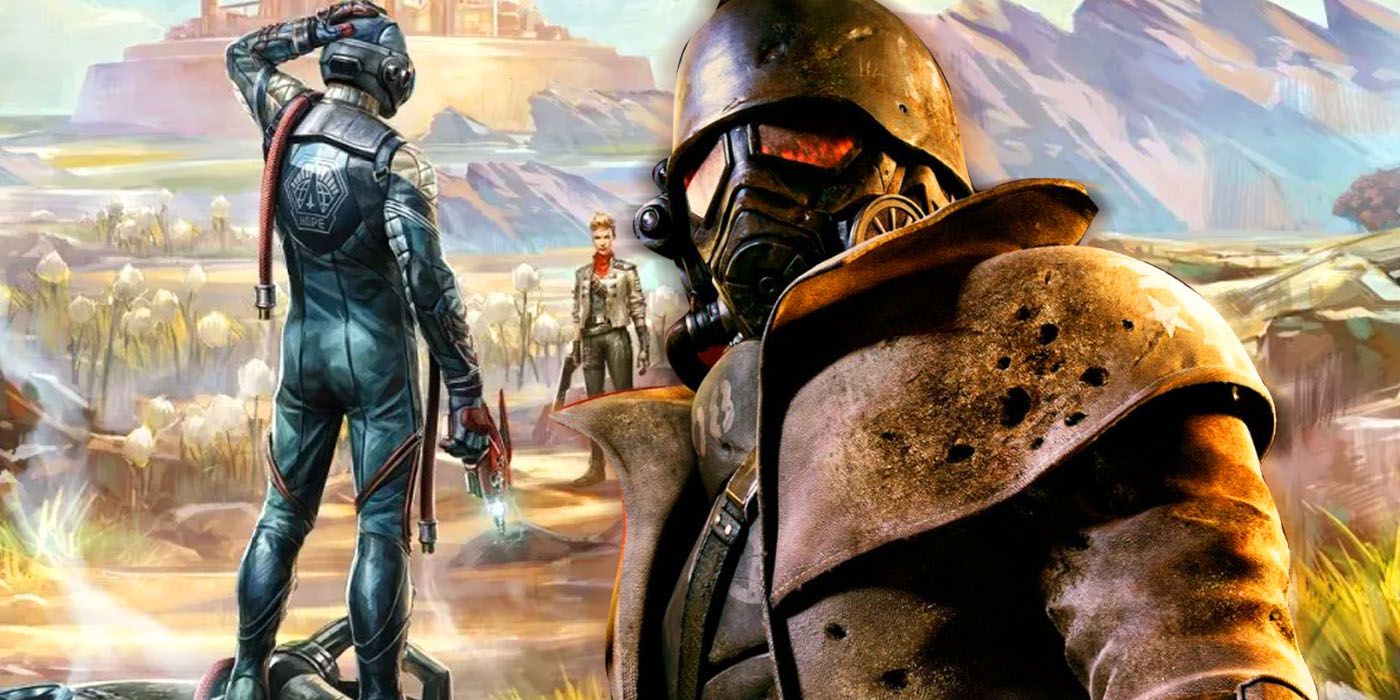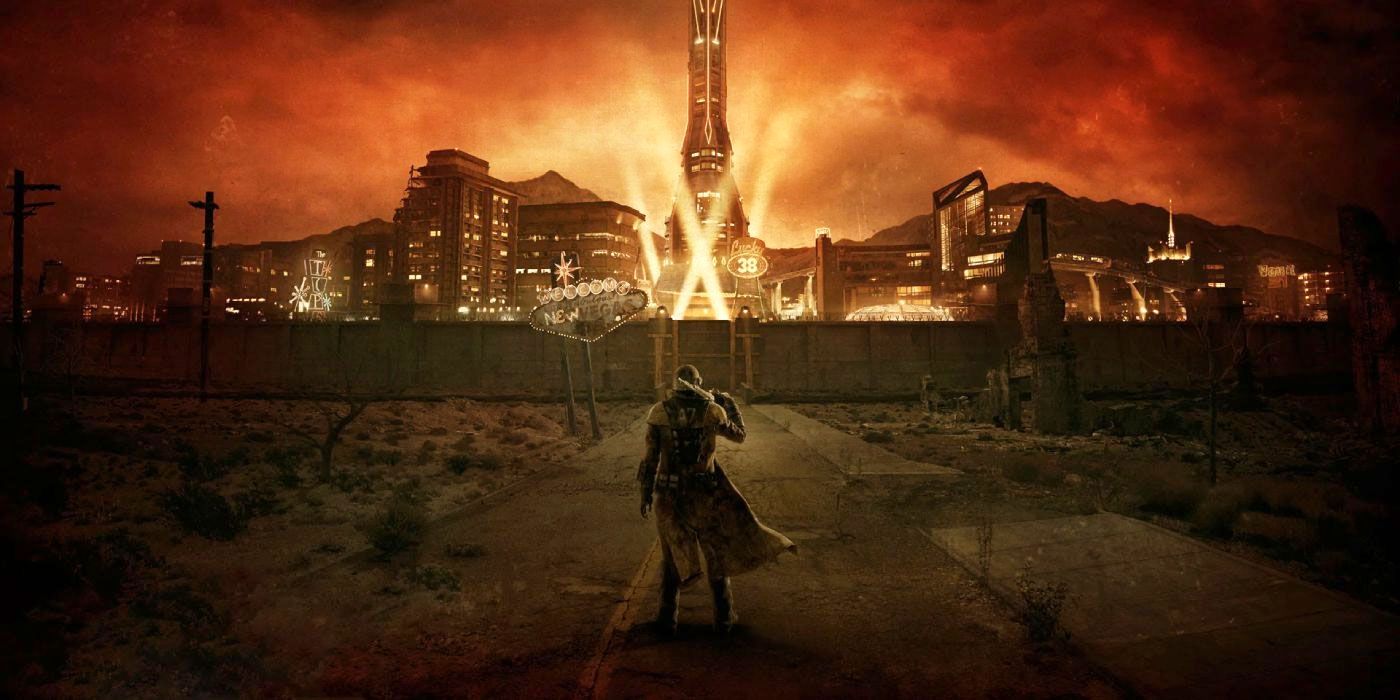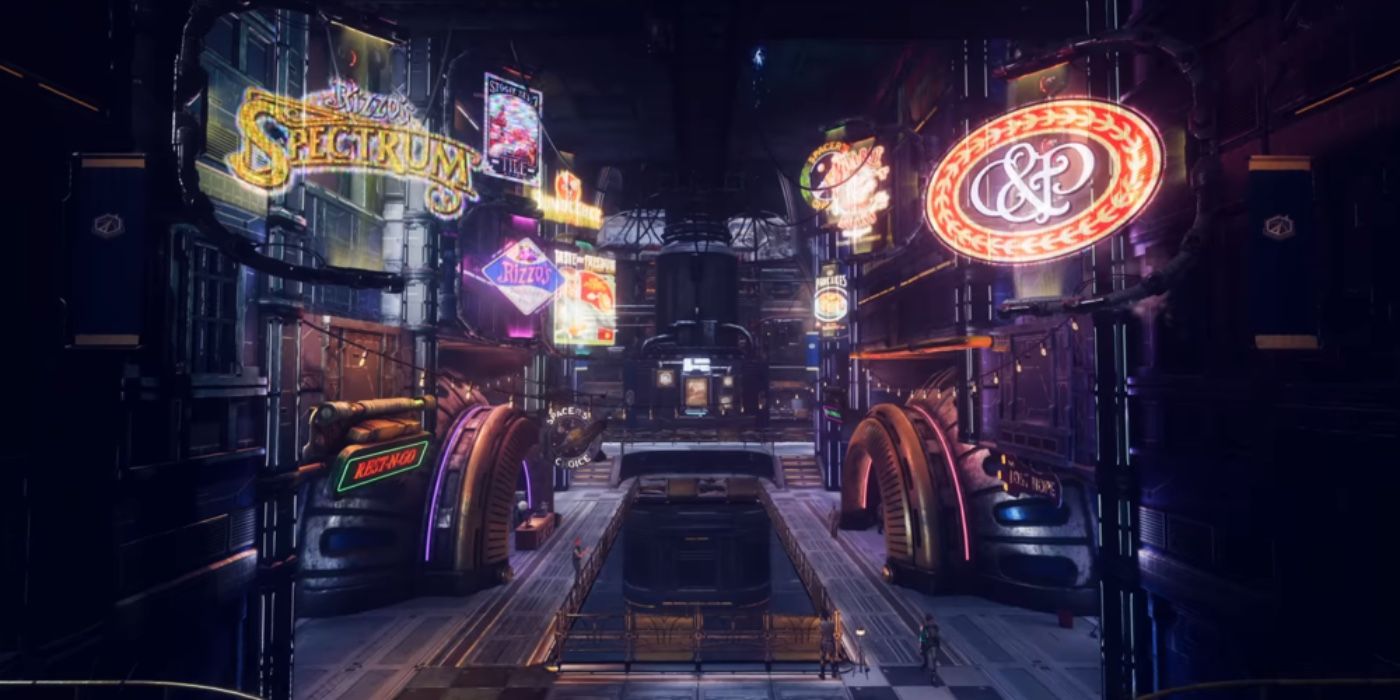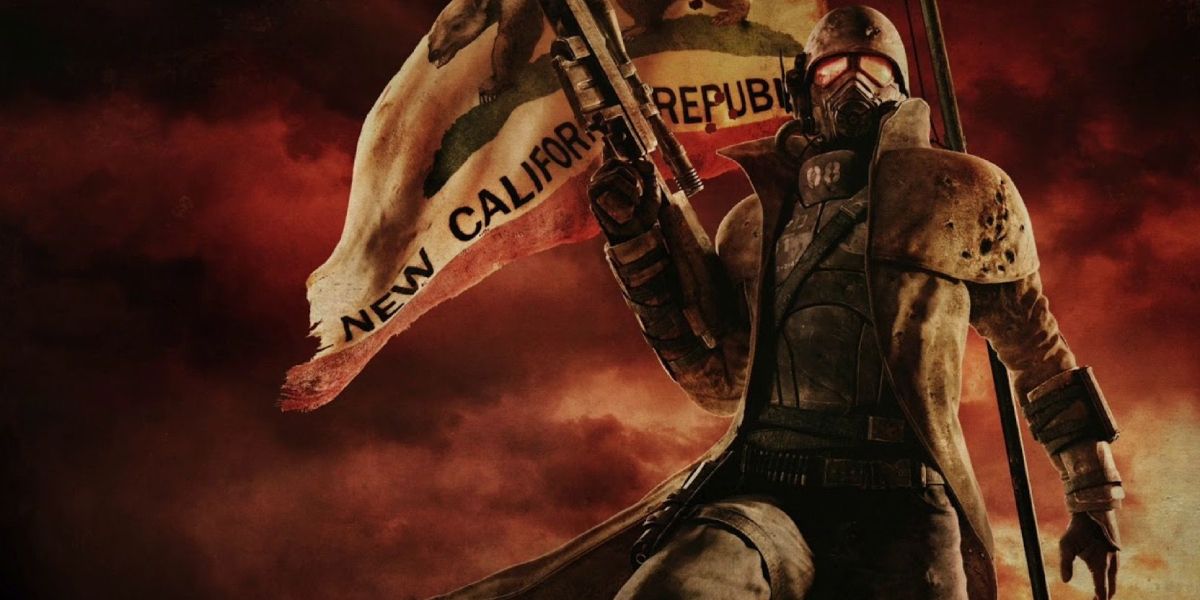Obsidian Entertainment is a workhorse of games development. Starting with Star Wars: Knights of the Old Republic II in 2004, the studio has created some of the most critically-acclaimed and enjoyable RPGs on the market. Of those, the two satirical science-fiction titles Fallout: New Vegas and The Outer Worlds are among the most beloved and best received.
There is a lot of common ground between these titles. Both are first-person RPGs that balance goofy humor with darker moments, and both have similarities in terms of character creation, combat and decision-making. The character systems are robust with lots of freedom for players to build the hero they want. Combat includes melee and ranged weapons in real-time action, with Fallout's VATS and The Outer Worlds's Tactical Time Dilation providing slower, more turn-based options. Storywise, each goes down distinct paths based on what the player does, which expands replayability. There is no bad decision here, but one of the two is definitely the better purchase.
Fallout: New Vegas
When Fallout: New Vegas came out in 2010, audiences praised it for taking the torch from Fallout 3 and going further. New Vegas streamlined and expanded the character skill system to give players more options in how they want to play. At the same time, Obsidian replaced the good-vs-evil morality system from Fallout 3 with a more nuanced reputation mechanic based on the one in Fallout 2. This helps deepen the storytelling and world-building while also making player choices more complex. The way players engage in combat didn't change, but the role of companions became much more detailed, and their relationships to the player improved as a result.
New Vegas did come with some problems, however. The game was buggy, even to the point of being unplayable. Many reviewers also criticized the relatively poor quality of the graphics and character animations. Fans of Fallout 3 didn't like many of the gameplay changes Obsidian made, either.
In the years since, however, New Vegas has only gotten stronger. Official patches improved stability and quality-of-life issues, and fans introduced their own mods and upgrade packs. There are also six official DLC packs, which add new locations, equipment, characters and hours of quests. Looking back, Fallout: New Vegas is often cited as one of the best games of its generation.
The Outer Worlds
The Outer Worlds came out in 2019 to a strong critical response. Fans eagerly anticipated the game as a return by the team behind Fallout: New Vegas, and the developers delivered an excellent adventure with plenty to enjoy. The world is bright and richly detailed with poignant satire woven throughout, and the beautifully-acted characters help bring everything to life.
Mechanically, The Outer Worlds has a lot in common New Vegas, though with various quality-of-life improvements, greater accessibility and subtle tweaks. Notably, The Outer Worlds balances player perks with flaws that give characters specific weaknesses, such as fear of robots, that negatively impact stats and add to the more chaotic atmosphere.
Since launch, The Outer Worlds has received two DLC expansions, Peril on Gorgon and Murder on Eridanos. These add a lot to the game's runtime, but they also highlight some of its issues. For one, the game's combat often feels like it was included for the sake of including it rather than existing as a vital part of the game. Fights are shallow and repetitive, causing combat to quickly lose its appeal in the game's otherwise engaging universe. There are some interesting science-based weapons, like shrink rays and mind-control guns, but they don't do enough to keep the experience fresh to the end.
Which Game Is Better?
The decade since Fallout: New Vegas came out makes the decision between the two games much easier. Although The Outer Worlds benefits simply from being a newer game with better graphics and other modern advancements, its fundamental mechanics aren't quite up to the standard set by New Vegas. The newer game is wonderful at first, but over the course of its adventure, it wears out its welcome. The satire and the combat simply aren't as complex as they need to be to live up to the other elements of the game.
Fallout: New Vegas is also the better economic decision. The Ultimate Edition, which contains the main game and all six expansions, came out in 2012 and sells for less than half the price of just The Outer Worlds' base game. For PC gamers, there is also the vast modding community adding content for free. On consoles, the decision isn't quite as easy since New Vegas isn't available on PlayStation 4 or PlayStation 5, but it is included in Microsoft's backwards compatibility program on Xbox One and Series X|S, as well as being available through Game Pass (where The Outer Worlds can also be accessed).
The Outer Worlds is not a bad game, and the upcoming sequel promises to be even better. In this comparison, though, it's no contest. Fallout: New Vegas offers a more thrilling adventure for a better price, and with the additions made in the decade since New Vegas came out, it's an even clearer choice.




